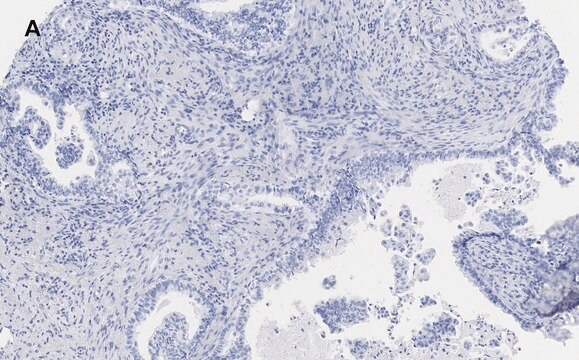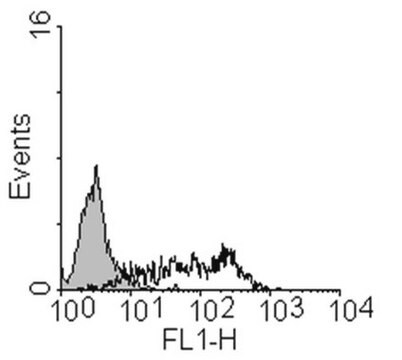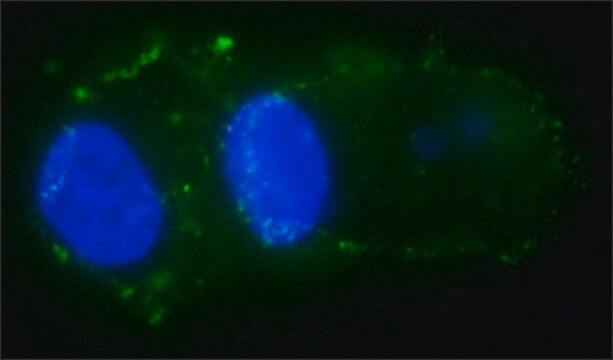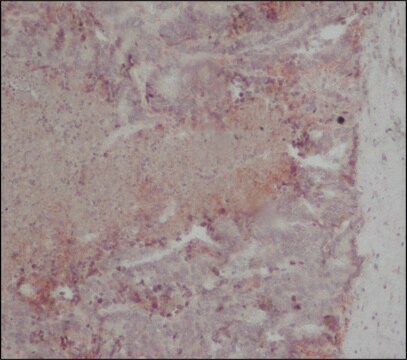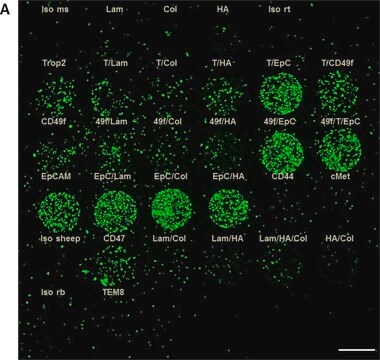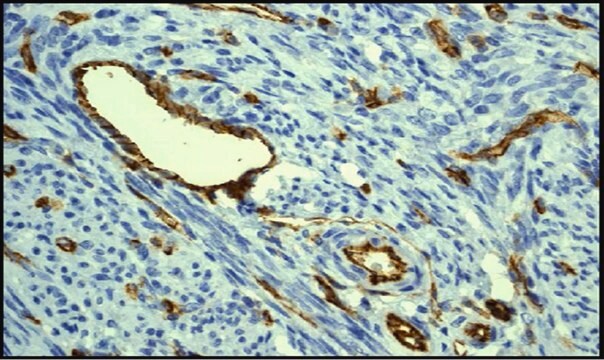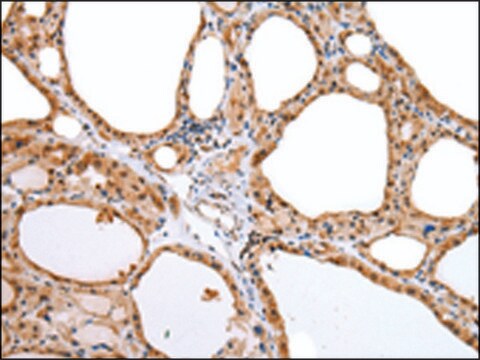Kluczowe dokumenty
SAB4200704
Przeciwciało anty-EpCAM, mysie monoklonalne
clone Ber-EP4, purified from hybridoma cell culture
Synonim(y):
Anty-Majorgastrointestinal tumor-associated protein GA733-2, Antygen anty-K1/4, Antygenpowierzchniowy komórek nabłonkowych, Przeciwnowotworowyprzekaźnik sygnału wapniowego 1, Antygen anty-CD326, Glikoproteina anty-nabłonkowa
About This Item
Polecane produkty
pochodzenie biologiczne
mouse
Poziom jakości
forma przeciwciała
purified immunoglobulin
rodzaj przeciwciała
primary antibodies
klon
Ber-EP4, monoclonal
Formularz
buffered aqueous solution
reaktywność gatunkowa
human
stężenie
~1 mg/mL
metody
immunofluorescence: 1-2 μg/mL using human breast adenocarcinoma MCF-7 cell line.
immunohistochemistry: 5-10 μg/mL using heat-retrieved formalin-fixed, paraffin-embedded human colon carcinoma sections.
immunoprecipitation (IP): suitable
izotyp
IgG1
numer dostępu UniProt
Warunki transportu
dry ice
temp. przechowywania
−20°C
docelowa modyfikacja potranslacyjna
unmodified
informacje o genach
human ... EPCAM(4072)
Opis ogólny
Immunogen
Działania biochem./fizjol.
Postać fizyczna
Oświadczenie o zrzeczeniu się odpowiedzialności
Nie możesz znaleźć właściwego produktu?
Wypróbuj nasz Narzędzie selektora produktów.
polecane
Kod klasy składowania
10 - Combustible liquids
Klasa zagrożenia wodnego (WGK)
WGK 2
Temperatura zapłonu (°F)
Not applicable
Temperatura zapłonu (°C)
Not applicable
Wybierz jedną z najnowszych wersji:
Certyfikaty analizy (CoA)
Nie widzisz odpowiedniej wersji?
Jeśli potrzebujesz konkretnej wersji, możesz wyszukać konkretny certyfikat według numeru partii lub serii.
Masz już ten produkt?
Dokumenty związane z niedawno zakupionymi produktami zostały zamieszczone w Bibliotece dokumentów.
Nasz zespół naukowców ma doświadczenie we wszystkich obszarach badań, w tym w naukach przyrodniczych, materiałoznawstwie, syntezie chemicznej, chromatografii, analityce i wielu innych dziedzinach.
Skontaktuj się z zespołem ds. pomocy technicznej
